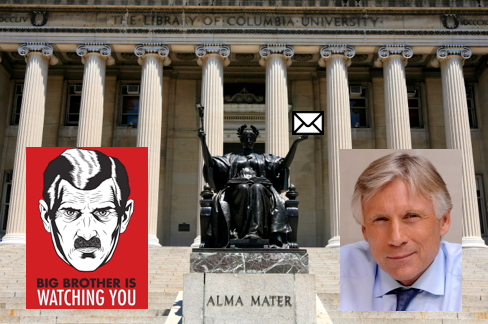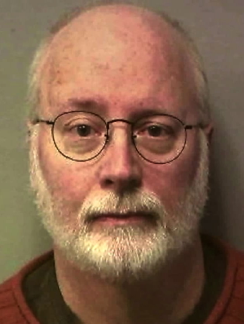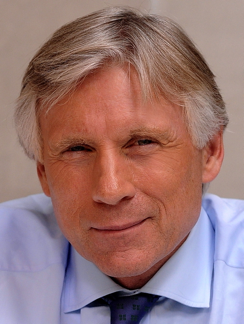
Corruption and Free Speech at Columbia
By Duane Thresher, Ph.D. October 10, 2022
These days, with Twitter and Facebook being hotbeds of censorship, IT and free speech are intimately related. I am an expert in both, although less willingly so for the latter, since I became so through denial of my free speech. My denial occurred at another hotbed of censorship these days, universities, and via a major method for censorship, email. This denial of free speech goes hand in hand with corruption at the universities, as it does for government.
This article, particularly its title, Corruption and Free Speech at Columbia (today is Columbus Day), is with acknowledgement to God and Man at Yale by William F. Buckley, who was essentially also writing about corruption and free speech (his book is subtitled The Superstitions of "Academic Freedom") at a university, Yale, while he was a student there, graduating in 1950. (Today Yale denies free speech to the point where some federal judges will no longer accept Yale Law School graduates as law clerks.)
I was a graduate student at Columbia University, doing climate modeling on supercomputers, and got my Ph.D. from there in 2004.
As has been widely reported recently, Columbia was caught, by one of its own math professors (Dr. Michael Thaddeus), outrageously lying (I read his proof; "outrageously" is justified) to dramatically increase its rank in the U.S. News & World Report college rankings. (Columbia subsequently withdrew from these rankings; expect numerous lawsuits against Columbia from Columbia students and their parents.)
As has also been widely reported recently, Columbia was successfully sued for a total of $236 million for sexual abuse by one of its medical doctors (Robert Hadden
 ) of a total of
226 patients. The large number of victims was because
Columbia silenced the complaints of some of the first victims.
(Ultimately, Columbia students and their parents will pay this
judgment.)
) of a total of
226 patients. The large number of victims was because
Columbia silenced the complaints of some of the first victims.
(Ultimately, Columbia students and their parents will pay this
judgment.)Less widely reported is that Columbia was ranked as the worst college for free speech, 203 out of 203, by the Foundation for Individual Rights and Expression.
The first two reports are directly related to the third — corruption necessitates preventing free speech, i.e. silencing, censorship.
The main purpose of the First Amendment, all of its clauses (freedom of religion, speech, press, assembly, petitioning government for redress of grievances), is to prevent government corruption, particularly totalitarianism, by protecting freely speaking out about it, in various forums. Columbia's president, Lee Bollinger
 , a lawyer who claims to be an expert
on the First Amendment and free speech, should know this and
apply it to Columbia, but chooses not to. (Lee Bollinger is
one of the highest-paid university presidents in the U.S.,
making $2.8 million in 2020, during the Coronavirus
Scare, when Columbia's finances were in serious trouble;
it's OK though, Bollinger bravely agreed to a
pay freeze.)
, a lawyer who claims to be an expert
on the First Amendment and free speech, should know this and
apply it to Columbia, but chooses not to. (Lee Bollinger is
one of the highest-paid university presidents in the U.S.,
making $2.8 million in 2020, during the Coronavirus
Scare, when Columbia's finances were in serious trouble;
it's OK though, Bollinger bravely agreed to a
pay freeze.)As a Columbia alum I have suffered much denial of free speech over the years by Columbia — for which I am contemplating a lawsuit — particularly through their Orwellian control of Columbia email accounts.
University email accounts are important because their addresses provide the user with authentication, since only someone who attended the university could have a university.edu address; see Apscitu's Secure Contact page.
Columbia has a long history of censoring my email. Some examples:
I programmed significant parts of two major climate models and based on that in-depth knowledge, particularly of their fatal weaknesses, I became a skeptic of climate predictions; see Climate of Incompetence. In 2017 I tried to discuss this by emailing various climate research organizations, including government organizations, using my Columbia email account. Columbia blocked the sending of these emails, based on their content — i.e. Columbia read them — and bounced them back to me announcing this.
Like other universities, Columbia has a leftist bias in political email spam filtering; see also the computer science journal article A Peek into the Political Biases in Email Spam Filtering Algorithms During US Election 2020.
University alum directories are supposed to provide the email addresses of alum to other alum so they can stay in contact, particularly about what's happening at their "alma mater" (Latin for "nourishing mother"; see picture, with Big Brother
 ,
Lee Bollinger
,
Lee Bollinger
 ). Columbia refuses to allow this.
It only allows alum to contact other alum through Columbia's
direct messaging system while logged into their Columbia
"community" account, just like Facebook. However, most alum
are almost never logged into their Columbia community account
so never get these messages. Columbia, however, gets to read
them, just like Facebook (possibly also reporting them to the
government, just like Facebook).
). Columbia refuses to allow this.
It only allows alum to contact other alum through Columbia's
direct messaging system while logged into their Columbia
"community" account, just like Facebook. However, most alum
are almost never logged into their Columbia community account
so never get these messages. Columbia, however, gets to read
them, just like Facebook (possibly also reporting them to the
government, just like Facebook).When I complained about this censorship to Columbia several years ago, Columbia permanently hid my Columbia community account profile, on which I had posted this complaint. Searching for me in the Columbia community gives a message saying I hid my profile, which I certainly did not. I have tried numerous times to unhide it but Columbia will not allow me to.
Given Columbia's extreme denial of free speech, you can expect corruption beyond lying on college rankings and silencing complaints of sexual abuse by their medical doctors, like on the taxes they should have paid on their huge endowment under a new law they fought against — the same things they lied about to U.S. News & World Report affect how much tax they should have paid.
Freedom of speech may be lost forever at universities (e.g. see MIT Lawyers v. Dr. Thresher), a loss process that ironically started with the Free Speech Movement at the University of California Berkeley in the 1960's, but perhaps Elon Musk can at least return free speech to Twitter. Fittingly, since denial of free speech is very scary, we should know by Halloween.
[Update: After Columbia University withdrew from the U.S. News & World Report college rankings after cheating on them, Yale Law School and Harvard Law School also withdrew. The law schools say they withdrew because the rankings incentivize the wrong things in education. However, they've been saying this for decades, at least since the 1980's, but have continued to participate, and been profitably near the top of the rankings. No, as any court would agree prima facie, Yale Law School and Harvard Law School probably withdrew from the rankings because they too were cheating on them.]
